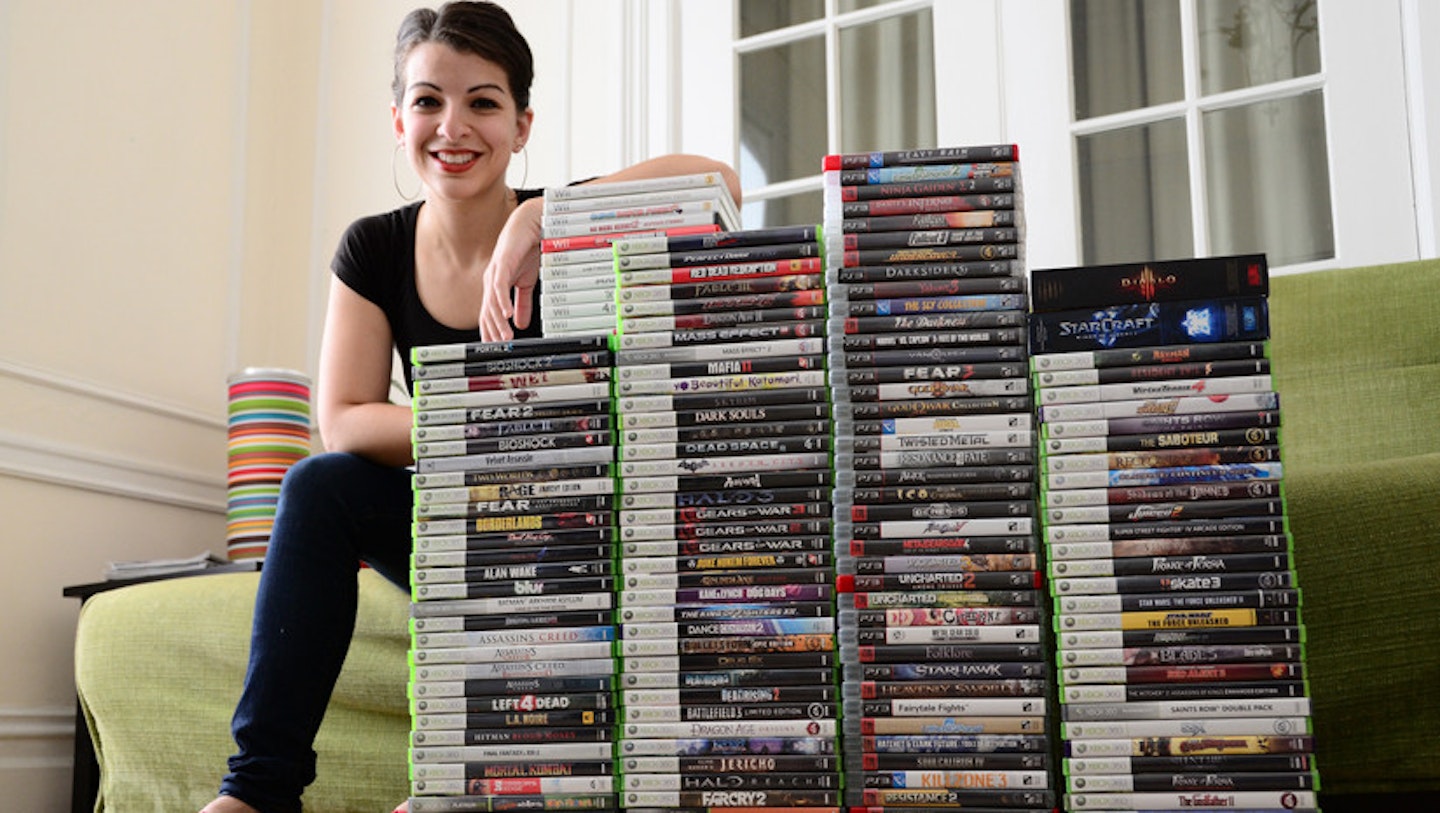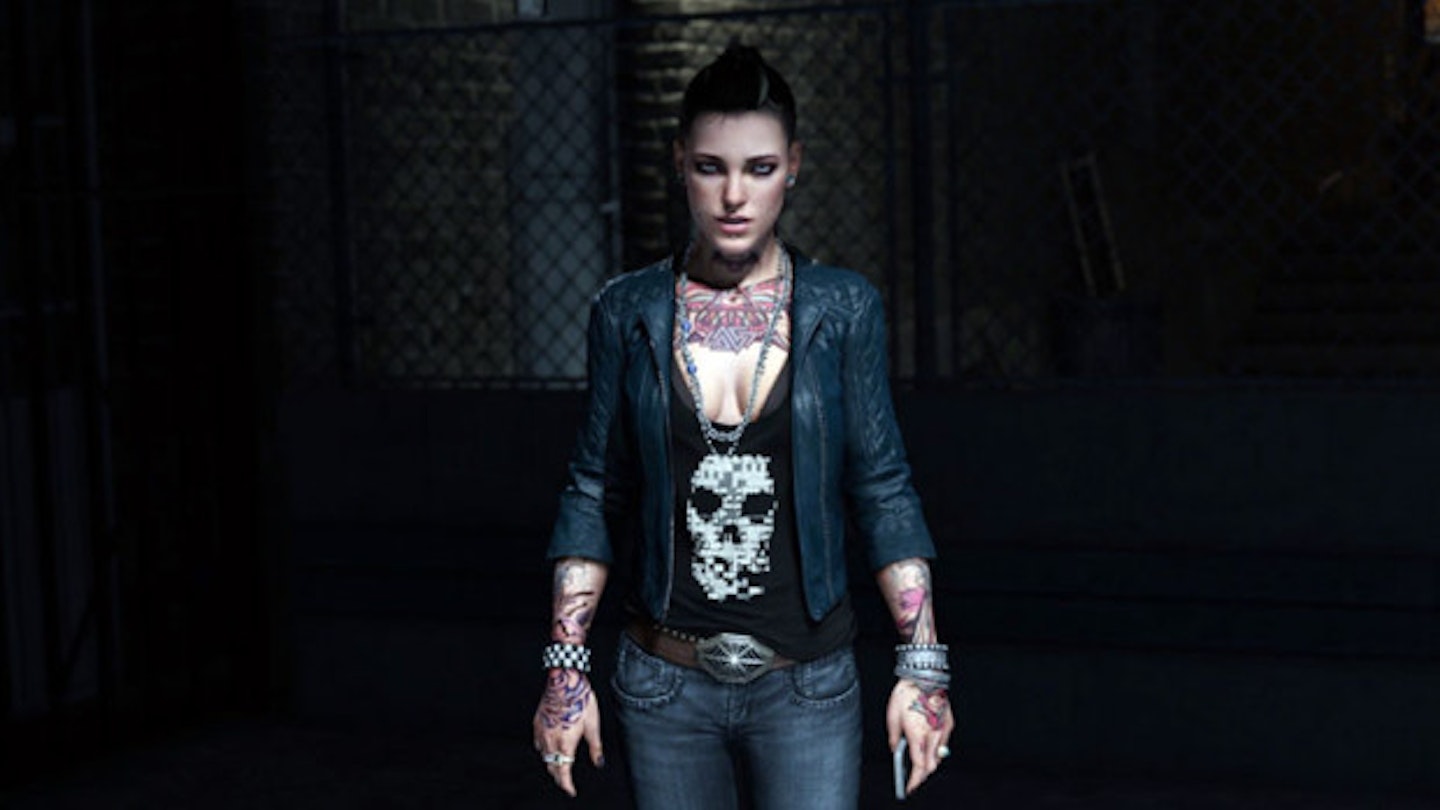So surprising news just in - new stats suggest that adult women now occupy the biggest demographic in the gaming industry. The Entertainment Software association revealed this week that women over the age of 18 make up a massive 36% of the gaming population. This partly down to the expansion of social games played on mobiles and casual games on PCs. And it's obviously great news. But it begs the question - why is the world of gaming still so sexist?
Anita Sarkeesian, is an American feminist is founder of Feminist Frequency – a website that hosts a video series on negative characters, or ‘tropes’, in the virtual world, called Tropes vs Women. Last week she found herself viciously trolled on Twitter by male gamers. Why? because she deigned to question the traditional roles of female characters in computer games.

Critiquing the 2006 game Hitman: Blood Money she wrote: ‘The marketing blitz surrounding the release of the 2006 game Hitman: Blood Money featured several advertisements depicting the murdered bodies of sexualized women with captions like “Beautifully executed”. Even in death these lingerie-clad women are posed provocatively to sexually arouse straight male viewers.’
Male gamers didn’t take kindly to Anita’s critique. Actually, that would be an understatement. A stand-out contributor was one Kevin Dobson, who unleashed a tirade of threats in response to her review, including one where he professes his desire to ‘drink blood from [her] c*** after ripping it open.’
Dobson’s trolling is an extreme example, but it’s indicative of the deeply entrenched and dangerous misogyny that’s found all too often in the gaming world. There’s a swathe of largely male gamers quick to belittle Anita’s efforts, such as one user Johnatan Torres, completely missing the point by tweeting 'lol bunch of drama queens, I only see attention seeking behaviour, nothing productive in favour of women.'
There was a general consensus among male and female gamers alike that women have got a lot of work to do if we want to be seen as more than scantily-clad fuckjars in the digital realm.
But what is it like to be a female gamer here in the UK? Nobody I spoke to had been on the receiving end of anything quite as depraved as Dobson’s threats, but there was a general consensus among male and female gamers alike that women have got a lot of work to do if we want to be seen as more than scantily-clad fuckjars in the digital realm. Yes, that’s right, we’re the ones who have to do the work.
Gamer Leanne Tayler says she 'only uses her surname as her username when playing online because ‘there’s some young kids playing who can be immature, and I’m not interested in that crap. I also wouldn’t wear a headset when playing online.’
Francesca Brough, who games with her boyfriend, seems disappointingly resigned to the fact that games are inherently sexist. ‘I think the gaming industry is male-dominated, so it should be expected that companies will use characters that appeal to men,’ she says. ‘I sometimes receive nasty comments and on other occasions I receive attention because I think players find it unusual to find a woman in the game. If you’re playing in a team and you do something wrong, you get trashed for it, and people say girls shouldn’t be allowed to play. But if I don’t speak, nobody knows I’m a girl, and I don’t get any hassle.'
READ MORE: Tampon Run, Where You Chuck Tampons At Enemies, Is Our New Favourite Game
Francesca’s right – gaming is still an incredibly male dominated industry in terms of production. ‘Only one major game developer [343 Industries, who make the Halo series] has a woman heading the company,’ explains Liam Gulliver, a software developer. He’s talking about Bonnie Ross, who, alongside ex-Activision employee Belinda Van Sickle, is one of the few women making a career in the video game industry. Van Sickle is, like Anita Sarkeesian, doing her bit to raise the profile of women gamers. She started a LinkedIn community for women in the industry that has now grown to a US-wide organisation.
In the UK there’s Ladies That UX, which is aimed primarily at women in user experience and tech roles, but is still an important step in the right direction. Founded in Manchester last year by user experience engineer Georgie Bottomley as a community where women in tech could meet, talk about coding and generally natter, it’s now operating all over the UK, as well as branching out into Spain, Sweden, Australia, New Zealand and Russia.
But, as Liam articulates there's still a wider problem getting code-handy women the respect they deserve. ‘In the near future, I'm going to be putting time into my indie studio and finally get a game made,’ he explains. ‘I want to be able to hire female developers or artists based on their merits and pay them based on their merits, not on their sex. I don't want to work in an industry where women are quite openly shunned.’
READ MORE: Think Sexism In The UK Is Bad? You Should See Australia
The assumption that women in the industry are sensitive or pathetic isn’t helped by the damsel-in-distress type roles most virtual females play within games. Tamsyn Kennedy, who blogs about gaming here, recounts a time when, over her headset, she asked a male player to stop using the word ‘rape’ when talking about player-to-player combat. She was promptly told to stop being such a sensitive girl and go play somewhere else, ‘but with added swear words.’
Predictably, many male gamers don't buy the argument that computer games are sexist. 'It's an issue that needs solving in the house,' Jon Adamson says. 'The media and the games industry can only do so much, and if kids were taught better and stuck by that teaching, then the odd objectivised gemale character in a game, or female gamers, would be a non issue.' But surely, it can't help matters that - as another gamer Emily Martell tells us - apart from Lara Croft, she can’t think of any other strong female leads in games, and that needy characters in need of rescuing are counterproductive.
We should all be thankful, then, that women like Anita Sarkeesian are willing to keep questioning why video games are stuck in the dark ages when it comes to women, despite what the Kevin Dobsons of this world may think. And with more women than ever before getting involved in gaming, the mission may not be complete, but it's certainly moved onto the next level.
Follow Thea on Twitter @theaestelle
**Liked this? You might also be interested in: **
Here's Why Some Critics Are Saying We Need To Step Away From The Ice Bucket Challenge
Post Viral Syndrome: How It Really Feels To Get Trashed On The Internet
This article originally appeared on The Debrief.
